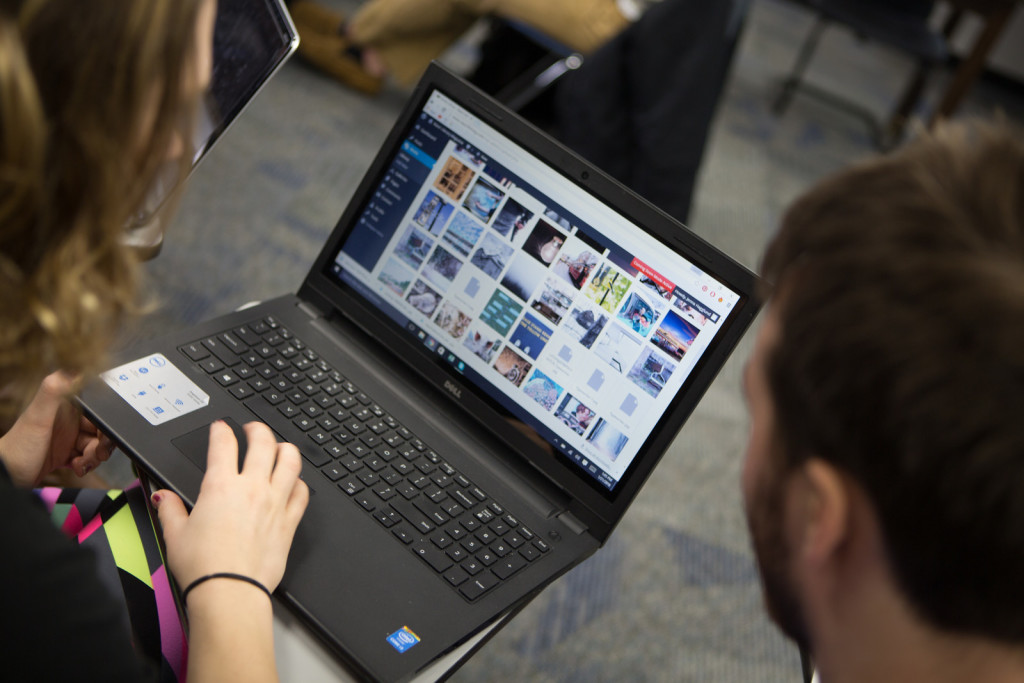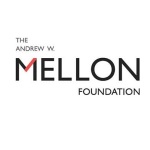 Gustavus Adolphus College is using a three-year, $100,000 grant from the Andrew W. Mellon Foundation to implement January Interim Experience courses that explore the digital humanities. The six courses offered this month emphasize collaboration, are project-based, and explore how digital media shapes meaning and can be used to research and present to both academic and broad public audiences.
Gustavus Adolphus College is using a three-year, $100,000 grant from the Andrew W. Mellon Foundation to implement January Interim Experience courses that explore the digital humanities. The six courses offered this month emphasize collaboration, are project-based, and explore how digital media shapes meaning and can be used to research and present to both academic and broad public audiences.
“Digital humanities offer opportunities for students to incorporate and utilize technology inside and outside the classroom,” said Glenn Kranking ‘98, professor of history and Scandinavian studies. “It’s not about re-imagining the humanities, but using modern tools to apply different lenses to analyze and show data.”
The six January Interim courses cover everything from “Food and Communication” to “Digital Literature: Editing and Publishing an Online Literary Magazine” to “Local and Global Depictions of the War on Drugs.”
Now in its first year, the Mellon grant is designed to support offerings for sophomore students entering their fifth semester. Gustavus elected to offer the courses during January term because it allows for intensive study and focus on the subject. The number of course offerings are scheduled to increase to eight next year and 10 in 2018. Faculty who wish to teach a January digital humanities course fill out an application and attend a weeklong summer workshop once they are selected.
“The digital humanities classes offer students an opportunity to develop through their coursework a reflective, integrative, and more focused understanding of the connections and possibilities underlying a liberal arts degree. This will be immensely helpful as students move toward graduation and beyond,” Associate Provost and Dean of Arts and Humanities Paula O’Loughlin said.
The digital humanities are a natural fit for a generation of students who have been described as digital natives. “Our students are using technology every single day,” Kranking said. “This is a way that we can connect students’ technology skills with the academic disciplines and give them something to show to employers or graduate schools as examples of what they can do.”
One other benefit of the Mellon grant is that it exposes faculty members to the digital humanities. “It’s introducing professors to these ideas, approaches, and methodologies with the hopes that they will then bring the digital humanities back to their other classes,” Kranking said.
Kranking is also applying the digital humanities to his own research on the movement of populations from Estonia to Sweden. “I had all of the information before, but now I’m interacting with it in a different way and can draw different conclusions,” he explained. “By building a digital map, I can explore the dynamics of the migration, search by age range or profession, and visualize the data.”
“This is a new way to reach more people,” he continued. “Oftentimes the work of academics is consumed only by other academics. By incorporating digital projects, we can reach a broader audience.”
Visit the Gustavus digital humanities website to learn more.

The Andrew W. Mellon Foundation was founded in 1969 by Ailsa Mellon Bruce and Paul Mellon. The Foundation endeavors to strengthen, promote, and where necessary, defend the contributions of the humanities and the arts to human flourishing and to the well-being of diverse and democratic societies. To this end, it supports exemplary institutions of higher education and culture as they renew and provide access to an invaluable heritage of ambitious, path-breaking work.
###
Media Contact: Director of Media Relations and Internal Communication Luc Hatlestad
luch@gustavus.edu
507-933-7510